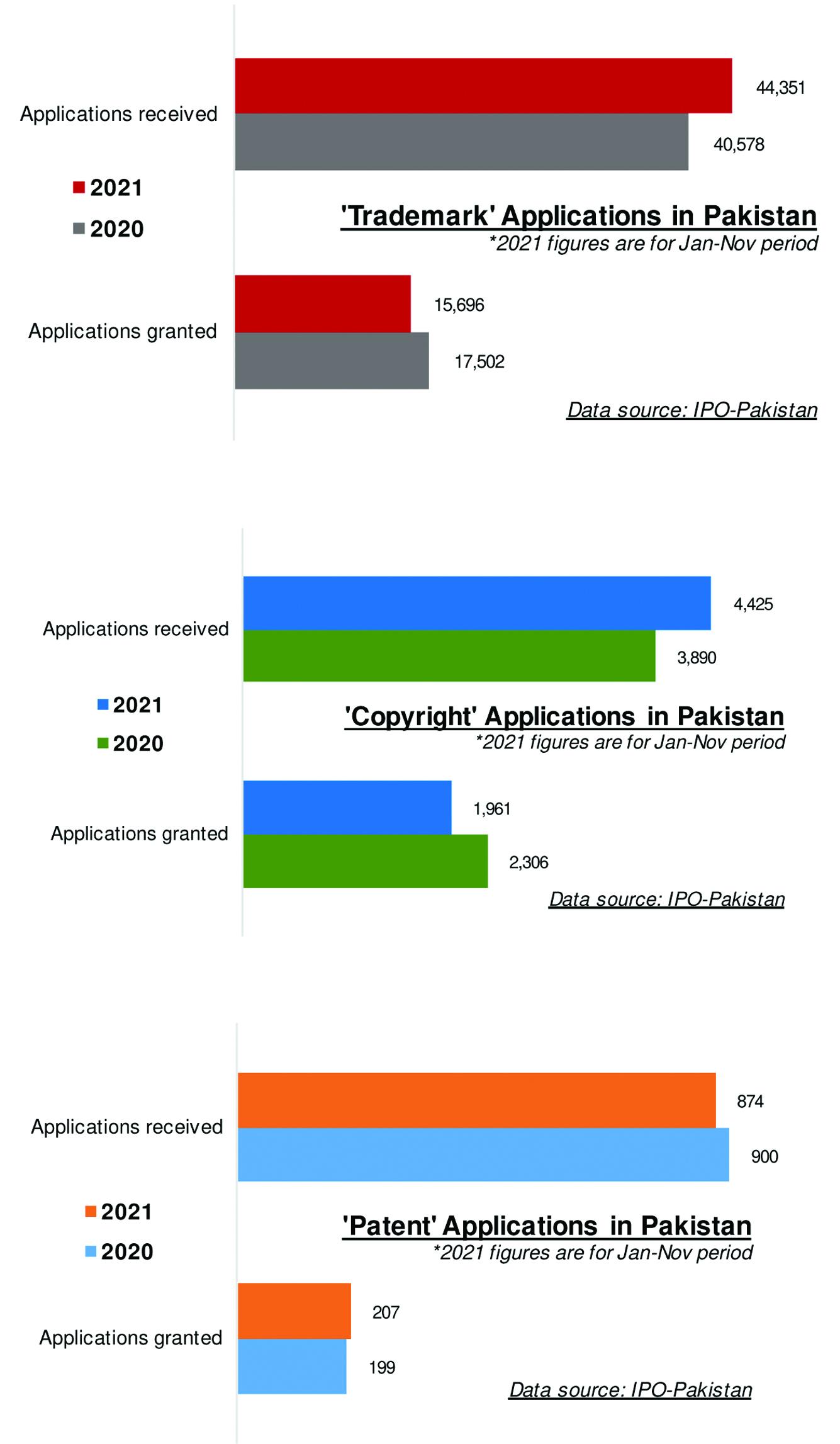Enforcement of Intellectual Property Rights (IPR) matters a great deal if Pakistan is to attract meaningful FDI and become an important part of global value chains. However, a recent survey by the Overseas Chamber of Commerce and Industry (OICCI) paints a bleak picture on this count. Some two-thirds of the survey respondents felt that the issue of IPR protection did not figure among top government priorities.
The IPR issues highlighted in OICCI survey, as reported in the news media, are several, spanning from registration of Intellectually Property (IP) to resolution of court cases. For instance, registration process of IPs (e.g. trademarks, copyrights, patents, geographical indications, designs) is deemed slow. There is perception that law enforcement authorities (LEAs) need training. Besides, the IP tribunals that adjudicate on IPR-related disputes are thought to lack requisite capacity for speedy dispensation of justice.
No wonder, a significant number of survey respondents complained that it took many years before even a basic IPR conflict is resolved in Pakistan. And in the cases where penalties or fines are imposed, the deterrent effect is not deemed potent enough to set a precedent for other unscrupulous operators. This state of IPR affairs, which impacts competition and fair play, also affects growing local companies.

The OICCI’s concerns on IPR enforcement in Pakistan do not come as a surprise. After all, it is the foreign companies that are at a comparatively heightened risk of having their IPs (which are registered and protected in their home jurisdictions and other markets) infringed locally. It would be insightful if this organization can also publicly share the extent of revenue losses on account of IPR violations.
The relevant regulatory body, IPO-Pakistan, was formed in 2005 by the federal government to advise it on IPR-related policies and to implement existing IP protection laws via LEAs and dedicated IP tribunals (based in Lahore, Karachi and Islamabad). The organization, which has its trademark registry, copyrights office, patents and design office in Karachi and regional offices in Lahore and Peshawar, is backed by IPO-Pakistan Act (2012). It has come a long way, good work is being done, and now it is time to step up.
But IPO-Pakistan cannot do it alone. There are significant challenges to IPR protection in Pakistan, necessitating a concerted approach by the public and private sectors as well as by the media and the public. For instance, the sheer magnitude of Pakistan’s informal economy, which is a natural breeding ground for brand theft, counterfeiting and deceptive marketing practices, makes IPR-related vigilance and enforcement a hard task. Raising public awareness is extremely crucial in this environment.
The situation is exacerbated by what seems like a deliberate policy choice to go easy on IPR violations, under a mistaken assumption that public at large benefits from cheaper products. This mindset needs to change, as IPR protection is essential for both foreign and local firms and to make economy competitive. Existing laws (which do exist for most types of IPs) need to be updated and brought in sync with other markets. In the end, a strong deterrence is required, for which inter-government coordination is the key.

























Comments
Comments are closed.